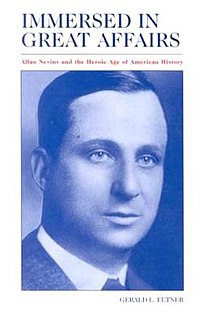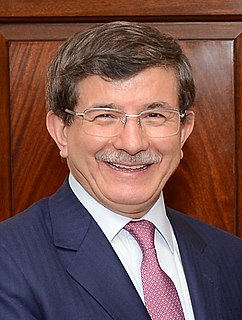A Quote by Allan Nevins
History is the sextant of states which, tossed by wind and current, would be lost in confusion if they could not fix their position.
Related Quotes
Men who have lost their conviction of what is good and what is bad find themselves without a sextant to check their position by. We are in the position of a man with an elaborate camping kit who finds himself lost in the woods without his matches; to kindle a fire he has to resort to the stratagems of the caveman. We fall back through generations into the oldest terrors and confusions of the race.
There would be a blaze and a confusion, in which timid men would doubt whether the constitution would be burned to tinder or only illuminated; but that blaze and that confusion would be dear to Mr. Daubney if he could stand as the centre figure, the great pyrotechnist who did it all, red from head to foot with the glare of the squibs with which his own hands were filling all the spaces.
You could take all the gold that's ever been mined, and it would fill a cube 67 feet in each direction. For what that's worth at current gold prices, you could buy all -- not some -- all of the farmland in the United States. Plus, you could buy 10 Exxon Mobils, plus have $1 trillion of walking-around money. Or you could have a big cube of metal. Which would you take? Which is going to produce more value?
History is a living horse laughing at a wooden horse. History is a wind blowing where it listeth. History is no sure thing to bet on. History is a box of tricks with a lost key. History is a labyrinth of doors with sliding panels, a book of ciphers with the code in a cave of the Saragossa sea. History says, if it pleases, Excuse me, I beg your pardon, it will never happen again if I can help it.
It was a murky confusion — here and there blotted with a color like the color of the smoke from damp fuel — of flying clouds tossed up into most remarkable heaps, suggesting greater heights in the clouds than there were depths below them to the bottom of the deepest hollows in the earth, through which the wild moon seemed to plunge headlong, as if, in a dread disturbance of the laws of nature, she had lost her way and were frightened.
The relationships of our present social life are so numerous and so interwoven that a child placed in the most favorable position could not readily share in many of the most important of them. Not sharing in them, their meaning would not be communicated to him, would not become a part of his own mental disposition. There would be no seeing the trees because of the forest. Business, politics, art, science, religion, would make all at once a clamor for attention; confusion would be the outcome.
He was beautiful, that was always affirmed, but his beauty was hard to fix or to see, for he was always glimmering, flickering, melting, mixing, he was the shape of a shapeless flame, he was the eddying thread of needle-shapes in the shapeless mass of the waterfall. He was the invisible wind that hurried the clouds in billows and ribbons. You could see a bare tree on the skyline bent by the wind, holding up twisted branches and bent twigs, and suddenly its formless form would resolve itself into that of the trickster.
From that day on, it was the desert that would be important. She would look to it everyday, and would try to guess which star the boy was following in search of his treasure. She would have to send her kisses on the wind hoping that the wind would touch the boy's face, and would tell him that she was alive.
I think there are universal principles that we should want to understand, but that are not necessarily good for us. We could recognise universal propensities which current cultures can't fully eradicate, which we would want to eradicate if we could. Let's say, a tendency for tribal violence. Or racism.
We current Justices read the Constitution in the only way that we can: as Twentieth Century Americans. We look to the history of the time of framing and to the intervening history of interpretation. But the ultimate question must be, what do the words of the text mean in our time. For the genius of the Constitution rests not in any static meaning it might have had in a world that is dead and gone, but in the adaptability of its great principles to cope with current problems and current needs.







































